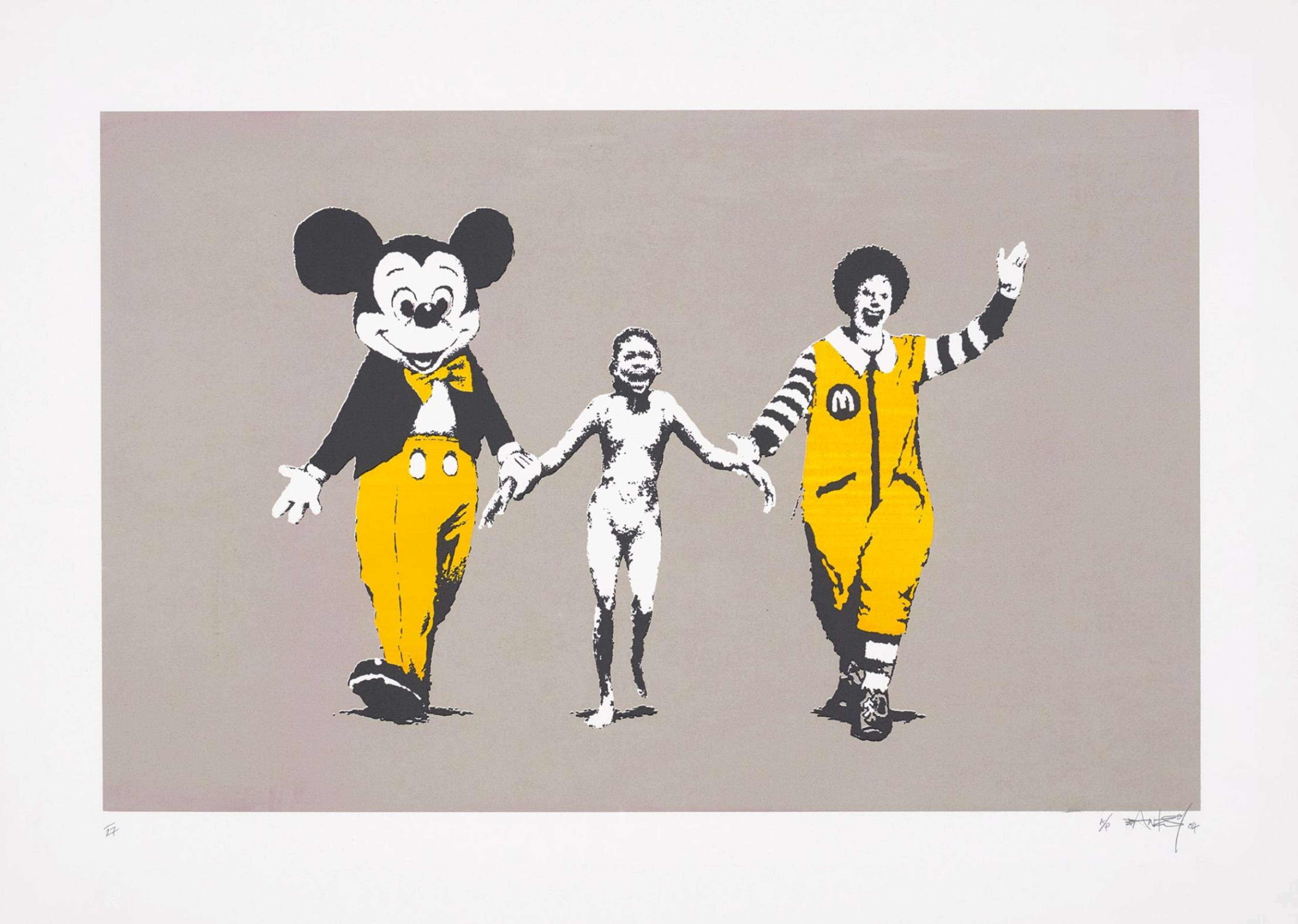 Napalm © Banksy 2004
Napalm © Banksy 2004
Banksy
270 works
One of the most poignant anti-war, anti-consumerist Banksy prints, Napalm generates a particularly haunting image.
To learn more about the work, and which celebrity artists are a fan of Napalm, see our 10 facts here:
What is the inspiration behind Napalm?
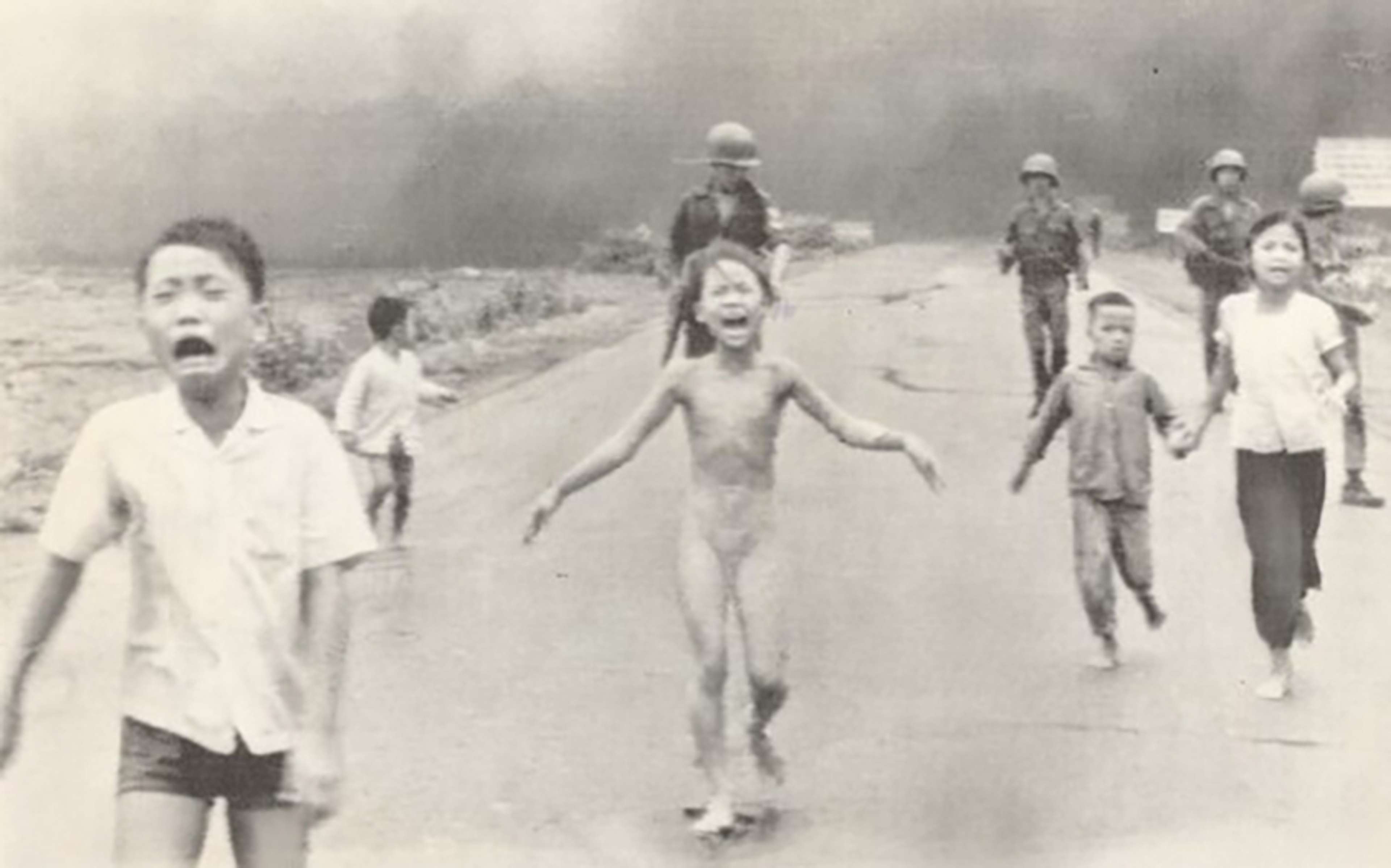 Image © National Gallery of Art, Washington / The Terror of War © Nick Ut 1972
Image © National Gallery of Art, Washington / The Terror of War © Nick Ut 1972Banksy’s Napalm, also called Can’t Beat That Feeling, is a take on Vietnamese-American photographer Nick Ut’s Pulitzer prize-winning photograph The Terror Of War, from 8 June 1972. The original image shows children and soldiers fleeing after the South Vietnamese air force accidentally dropped napalm (a gel mixture that burns up to 1200°C) on the village. Central to the image is a crying girl, running with her hands stretched out, having been burnt in the napalm attack.
What does Banksy’s Napalm show?
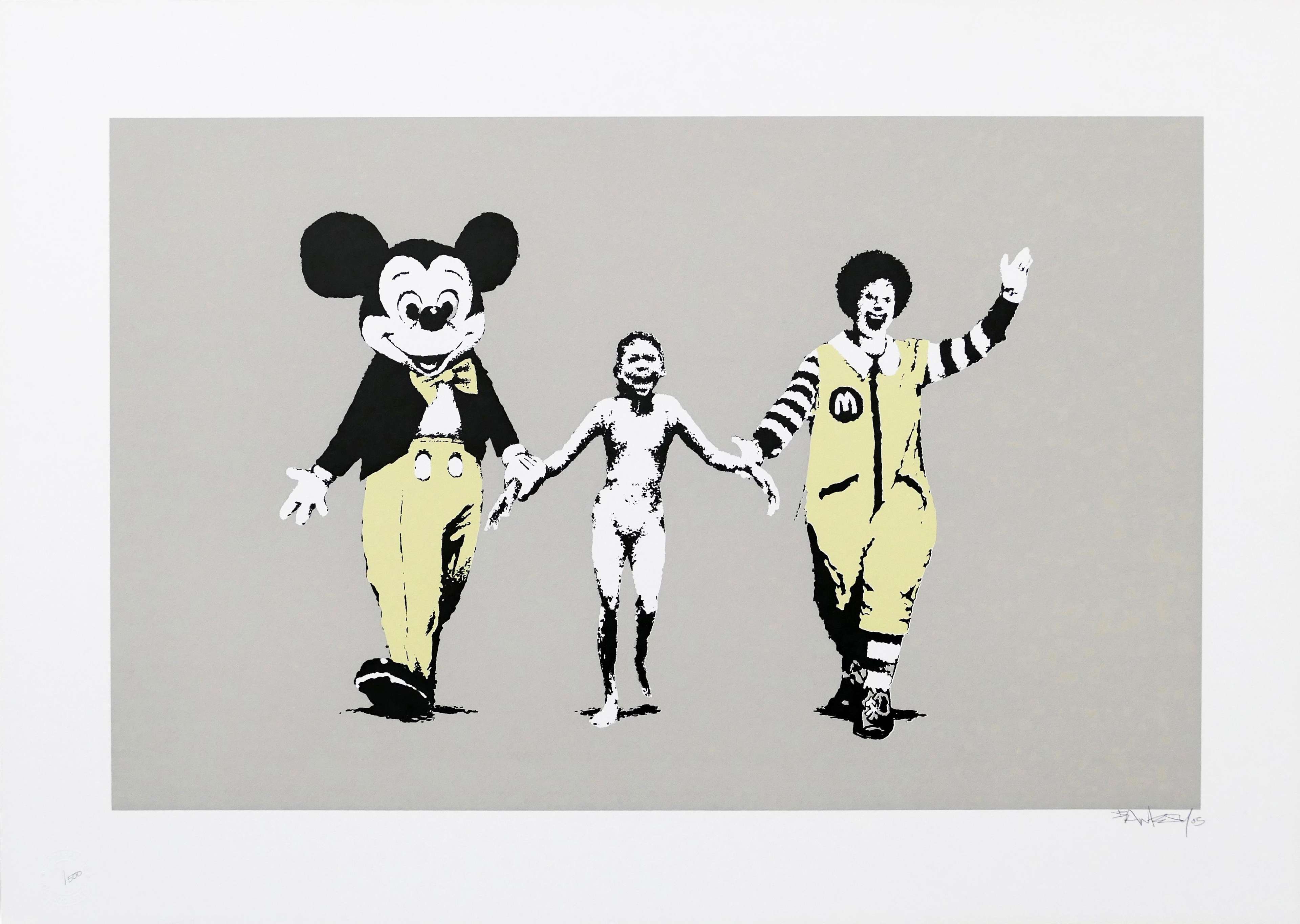 Napalm © Banksy 2004
Napalm © Banksy 2004For Napalm, Banksy removed the other children and soldiers in it’s original photograph and instead features Ronald McDonald and Mickey Mouse, the mascots of McDonald’s and Disney, holding the girl’s outstretched hands with inappropriate, trademark grins on their faces. The two characters’ joyous smiles stand in stark contrast to the distraught expression of agony on the little girl's face – as the artwork’s other name is Can’t Beat That Feeling, Banksy throws into question which ‘feeling’ the title refers to.
Who was the girl in the picture?
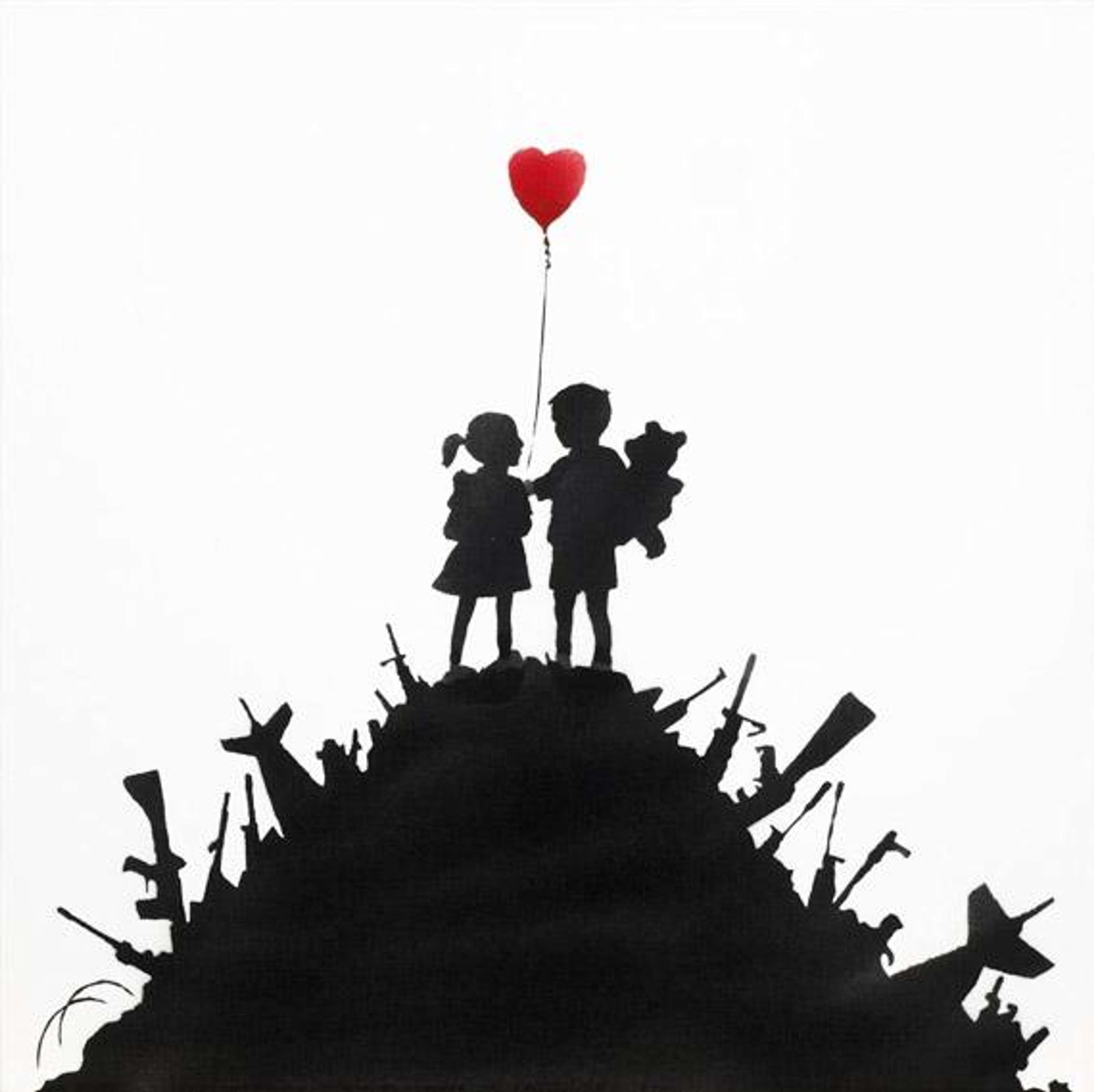 Kids On Guns © Banksy 2004
Kids On Guns © Banksy 2004The girl pictured in both it’s The Terror Of War and Banksy’s Napalm is Phan Thi Kim Phuc, who was 9 years old at the time of the napalm attack. She suffered severe burns covering 30% of her body, but it helped to get her transferred to an American hospital where she received life-saving treatment.
Kim Phuc now lives in Canada and is a UNESCO ambassador. Her biography The Girl In The Picture was published in 1999.
What is the meaning of Banksy’s Napalm?
 Napalm © Banksy 2004
Napalm © Banksy 2004While it’s photograph reveals the atrocities of war, Banksy’s artwork suggests the dangers of corporations and capitalist power on children: Mickey Mouse and Ronald McDonald, icons from two of the world’s biggest companies, hold Kim Phuc’s hand but seem unconcerned by her distress. They sinisterly smile and wave through the chaos, leaving the viewer to wonder if they are saving Kim Phuc or guiding her to a worse fate.
Banksy often uses children’s characters for satire and irony
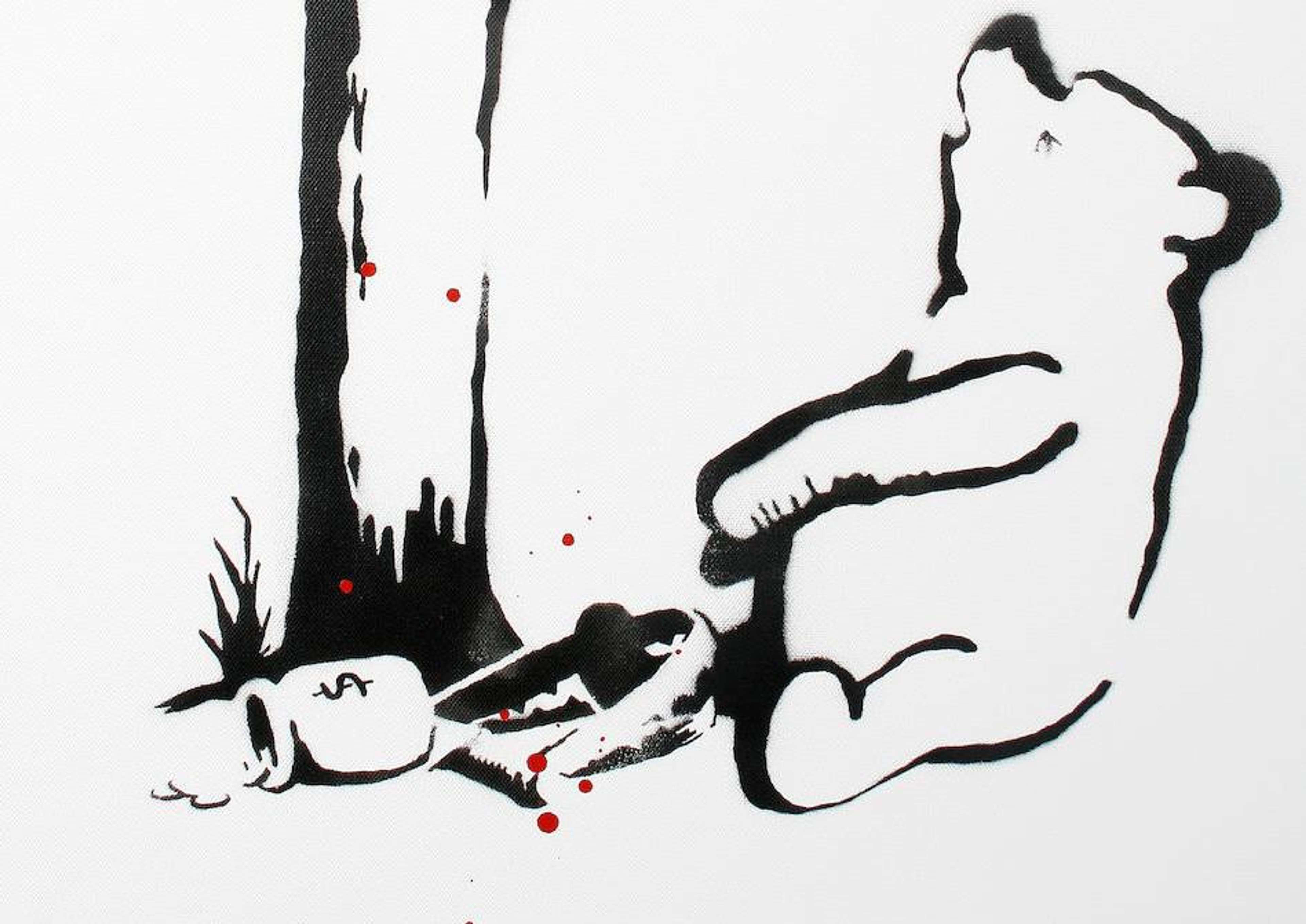 Winnie The Pooh © Banksy 2003
Winnie The Pooh © Banksy 2003Like Napalm, Banksy’s Winnie The Pooh takes a beloved character and uses him for a social message. The famous teddy bear is pictured weeping under a tree, his foot caught in a bear trap. Next to him is a pot of money, instead of a pot of honey. Pooh has been caught out in his greed for wealth and materialism.
Napalm was released as a print in 2004
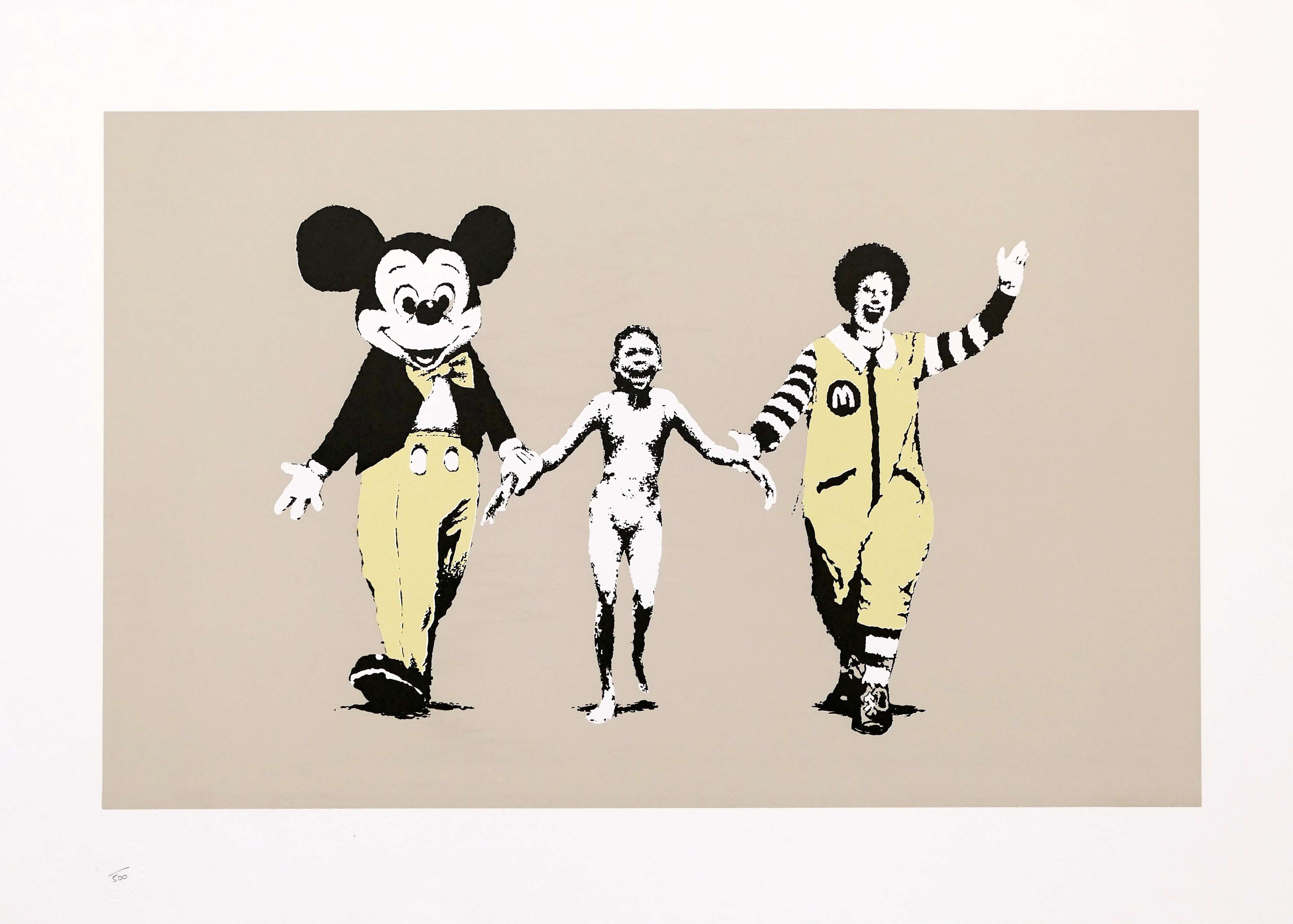 Napalm © Banksy 2004
Napalm © Banksy 2004Unusually for Banksy, Napalm exists only as a screen print and was never made as street art. There were 150 signed and 500 unsigned prints released in 2004, along with 27 signed ‘orange’ artist proofs, showing Mickey and Ronald wearing orange outfits, and 27 signed ‘rainbow’ artist proofs, showing Mickey and Ronald wearing pink ombre outfits.
A special edition of Napalm was released in 2006 for an exhibition
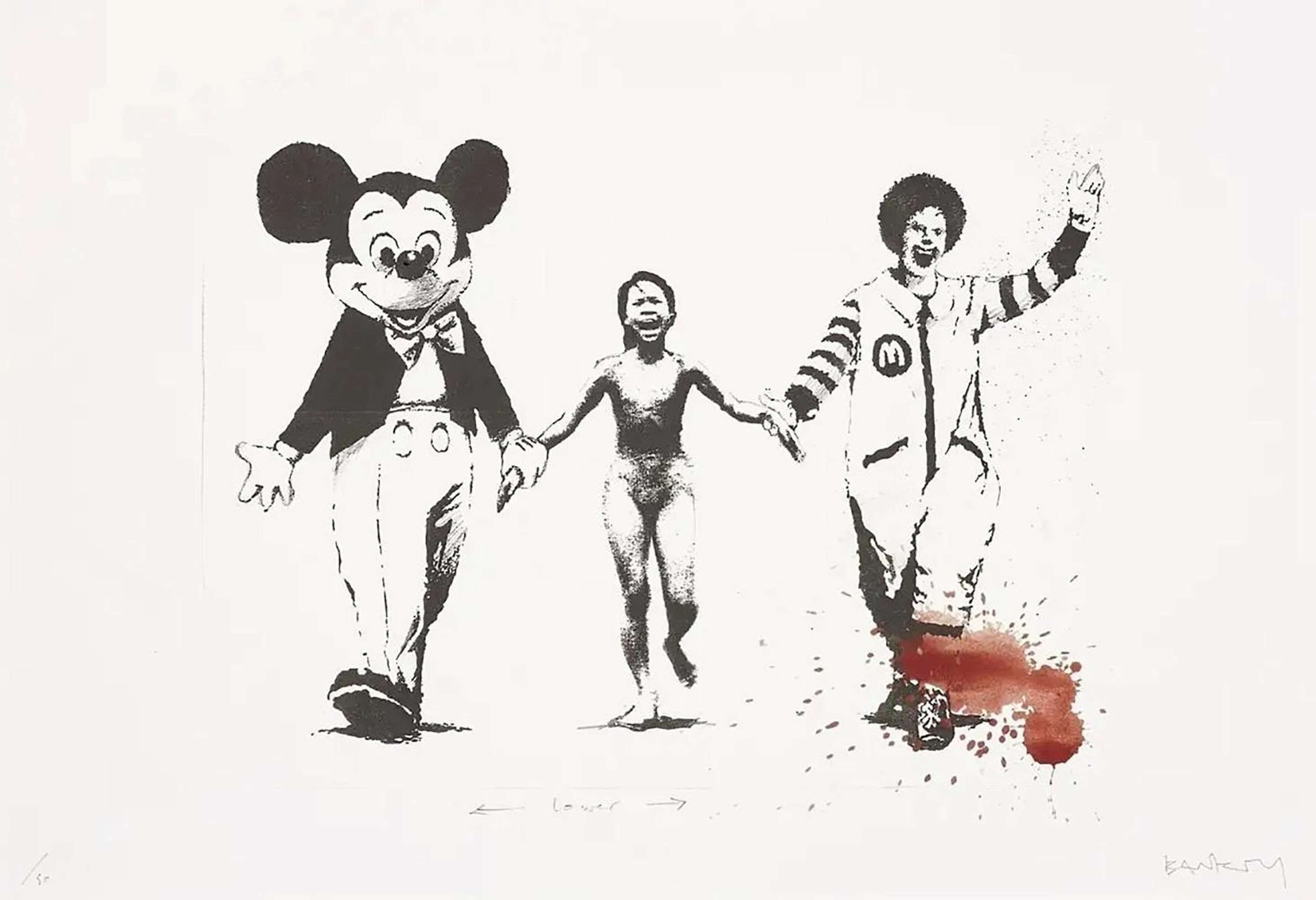 Napalm (special edition) © Banksy 2006
Napalm (special edition) © Banksy 2006The show was called ‘In The Darkest Hour There May Be Light, Works from Damien Hirst‘s Murderme Collection’ and ran from November 2006 to January 2007 at the Serpentine Gallery in London. Hirst exhibited over 60 works from 24 artists, including Banksy, Francis Bacon, Tracey Emin and Andy Warhol. To mark the show, Hirst curated a limited-edition portfolio of 50 signed prints, which included a version of Napalm featuring a red ‘blood splatter’.
Damien Hirst owns a copy of Napalm
 For The Love Of God (black) © Damien Hirst 2007
For The Love Of God (black) © Damien Hirst 2007Hirst purchased a copy of Napalm in 2006 for his personal collection and has often expressed his respect for Banksy, arguing that the anonymous graffiti artist is ‘a surrealist who makes you think about the world in a completely different way.’
A Napalm print can sell for five-figure sums at auction
 Morons (LA Edition, White) © Banksy 2007
Morons (LA Edition, White) © Banksy 2007In January 2021, a rare artist’s proof of Napalm (orange colourway) soared past its £20-30,000 estimate and sold for £81,900 with fees. The top price for a signed edition of Napalm is £81,900 with fees, achieved in April 2022 at Sotheby's in London.
Which Banksy prints speak out about capitalism?
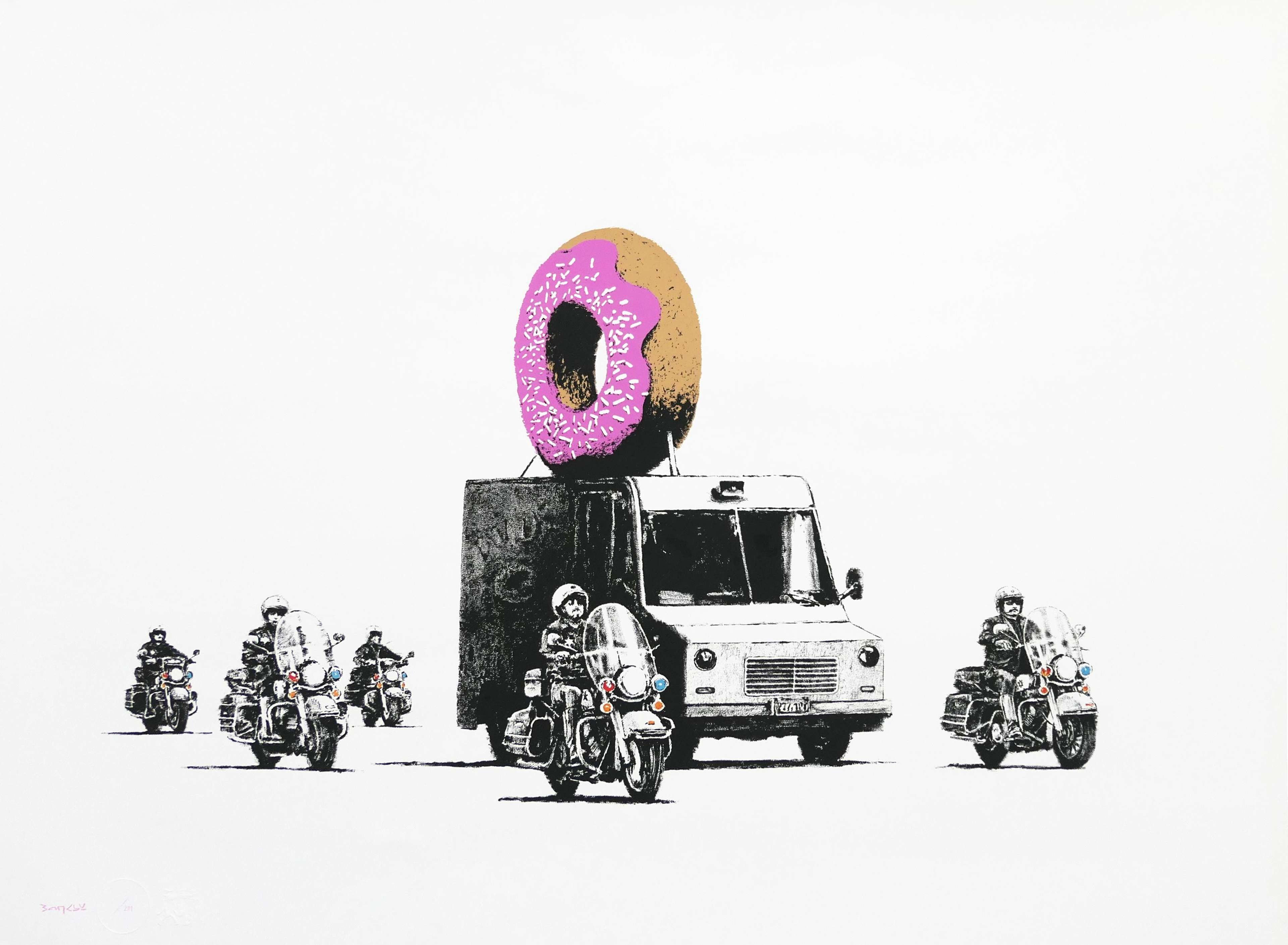 Donuts (strawberry) © Banksy 2009
Donuts (strawberry) © Banksy 2009The anonymous graffiti artist frequently uses his work to comment on major global issues, including war, violence, consumer culture and capitalism. Banksy’s Donuts print from 2009, created shortly after doughnut company Krispy Kreme’s financial struggles, shows how far authorities are willing to go to protect company interests.
Discover 10 Facts About Banksy's Donuts.

